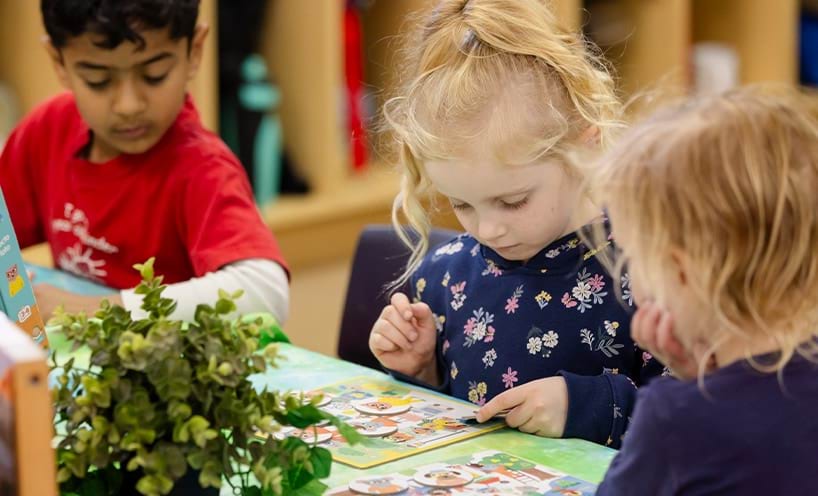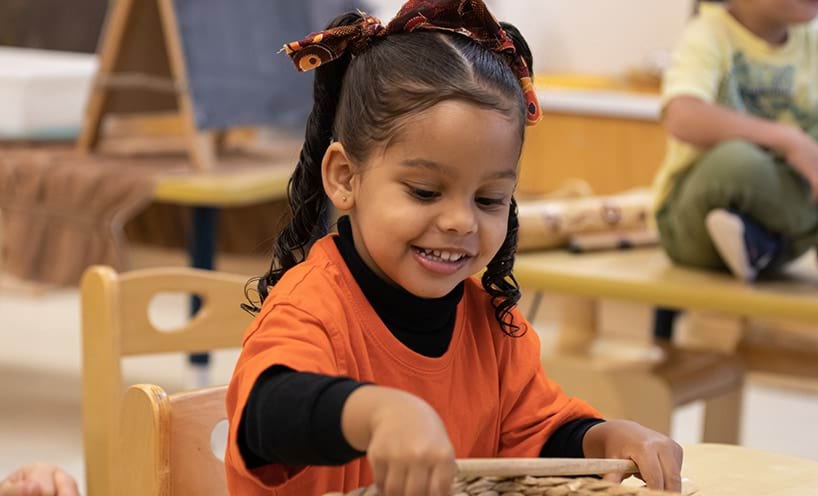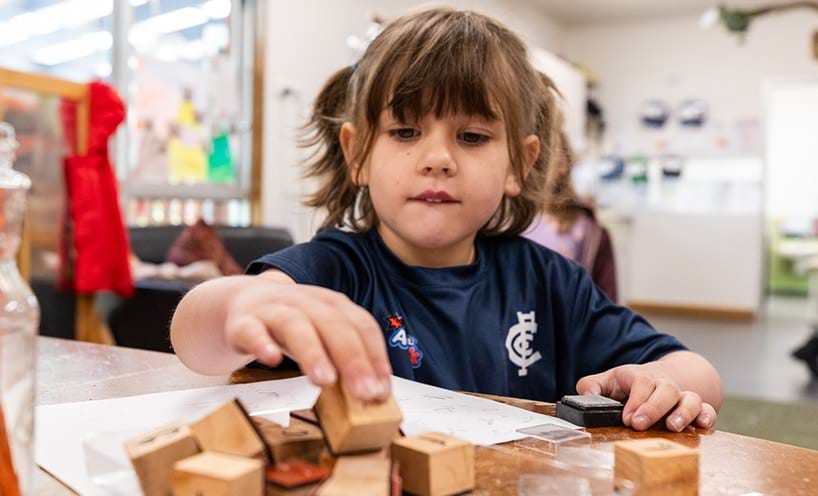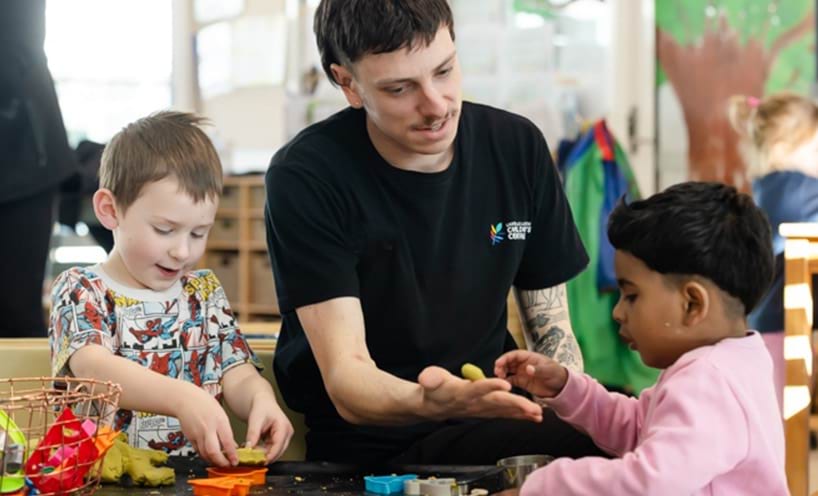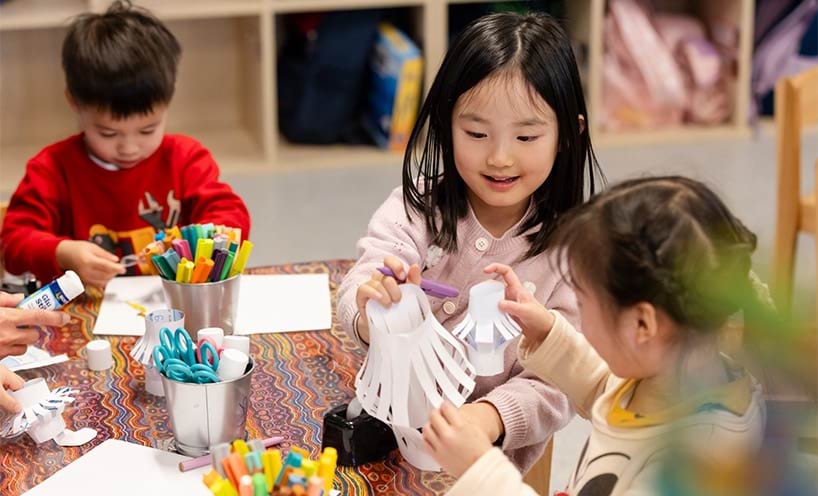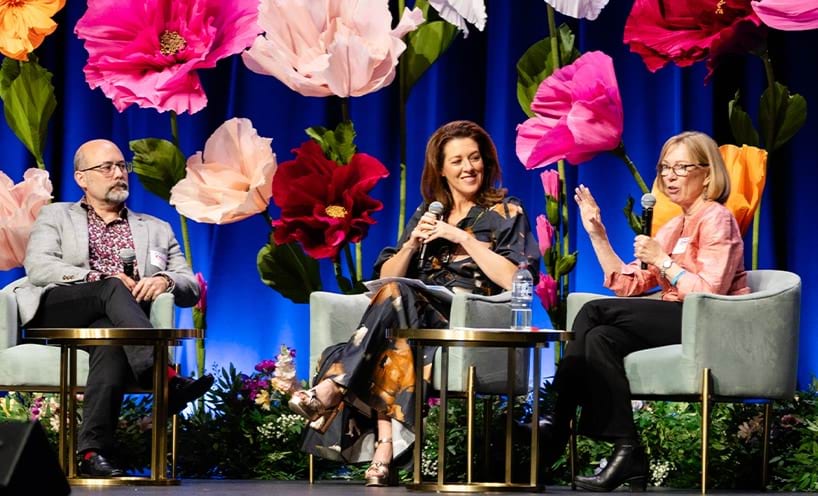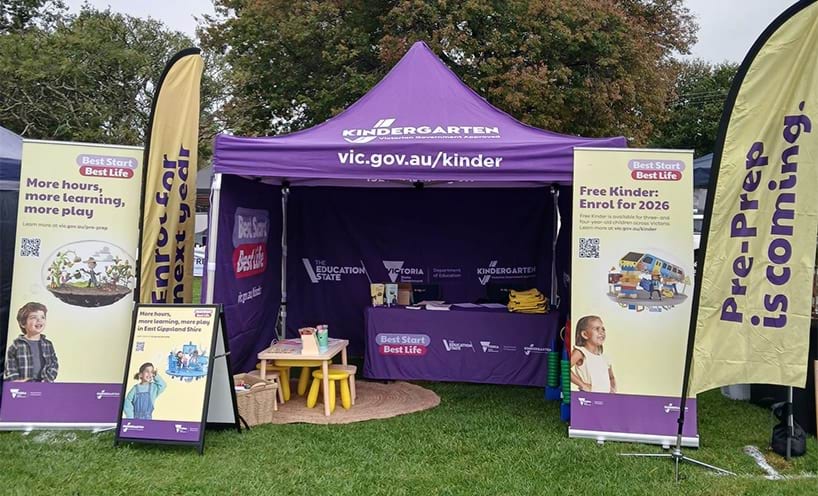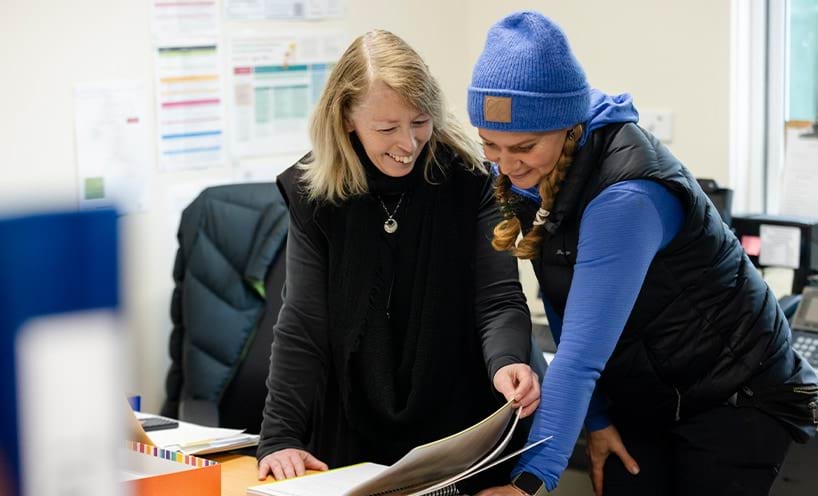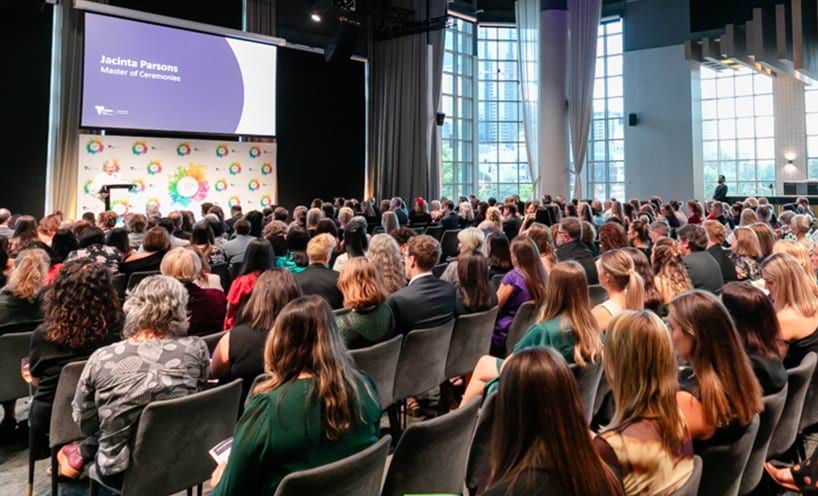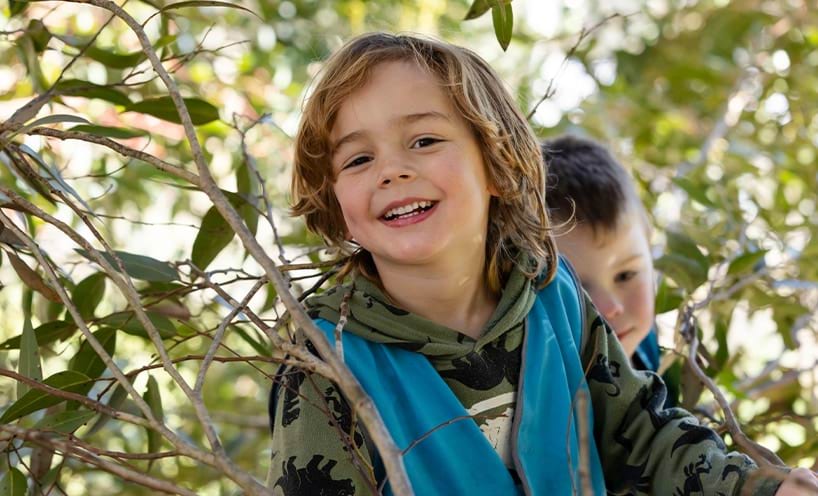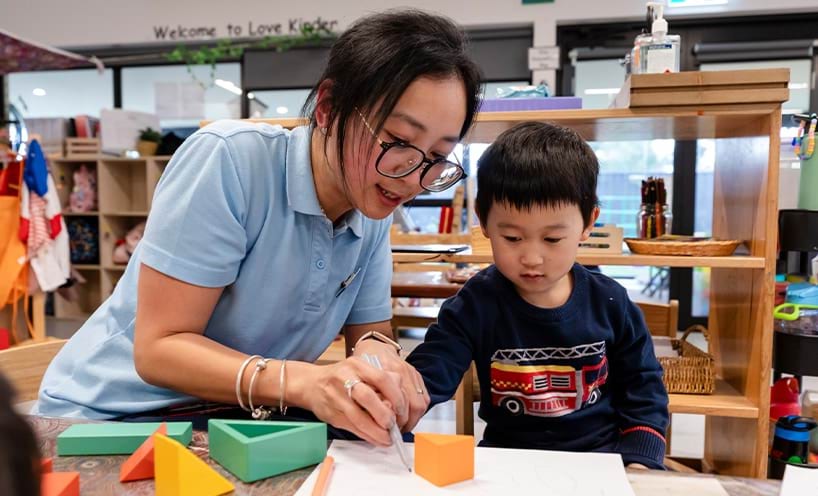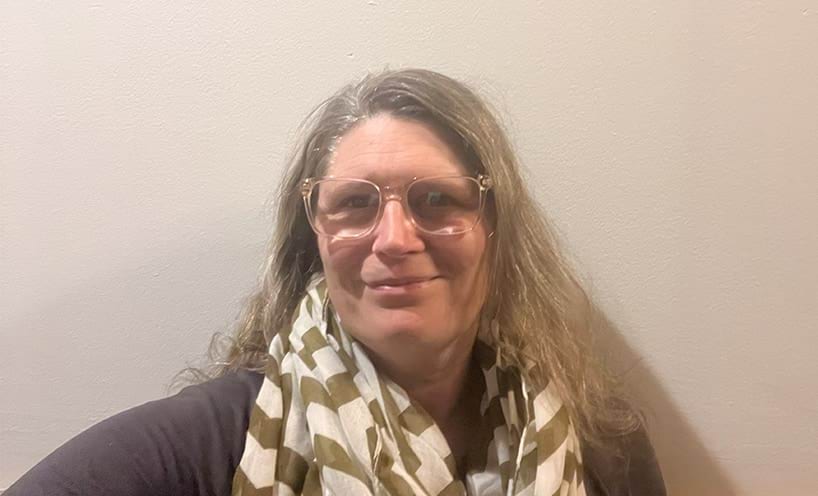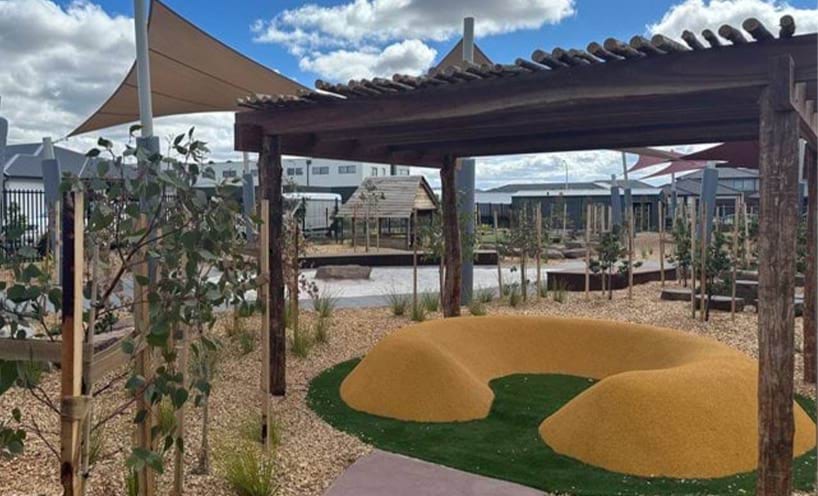- Published by:
- Department of Education
- Date:
- 7 May 2025
The Early Childhood Update e-newsletter is sent to early childhood teachers and workers, but is open to anyone interested in best practice in early years education and evidence-based teaching approaches. Subscribe here to receive the e-newsletter(opens in a new window).
Investing in a robust workforce and helping build long-lasting careers
Recognising the vitally important work of early childhood professionals and supporting career development.
Dear colleagues
Next week marks National Careers Week (12 – 18 May 2025), a time to celebrate the pathways into the early childhood education and care (ECEC) profession and promote different career development opportunities. ECEC careers have great diversity of experiences and endpoints – including pedagogical, research, and organisational leadership – and fantastic flexibility. These aspects are a real drawcard for the profession. Careers in ECEC are important for the whole community, and help to shape the lives of young children, laying the foundations for their future.
It’s also a good time to reiterate the Victorian Government’s commitment to supporting and elevating the ECEC workforce. The government’s reforms to Three- and Four-Year-Old Kindergarten programs need a growing workforce and it is fantastic to see that the workforce delivering funded kindergarten programs in Victoria has increased by more than 50% since 2019.
The workforce is continuing to grow, thanks to the efforts of the sector and with the support of the Victorian Government’s investment in programs to attract and retain early childhood teachers and educators.
More than 5,000 early childhood teaching scholarships have been awarded since 2019 and more on-the-job training and career development opportunities have been launched, through partnerships with universities and training providers – all while continuing to support the existing workforce to expand their skills and capabilities. In this edition, you can read the inspiring story of Jennie Martin, who has embraced the opportunities available to her and has pursued a rewarding career.
To help you and your teams develop and expand on your skills, regardless of career stage, we have a range of professional development opportunities available, some of which you can read more about in this edition.
Finally, I’m pleased to announce that nominations are now open for the Victorian Early Years Awards (VEYA). This year, we’re celebrating 20 years of recognising the outstanding work by the early years sector to improve the health, learning, development and wellbeing of Victorian children and their families.
If you know someone – be it yourself, your team, or an inspiring individual – who deserves recognition, be sure to shine a spotlight on their impact by nominating them.
Wishing you all the best for the month ahead.
Bronwen FitzGerald
Deputy Secretary
Early Childhood Education
Next steps in the Disability Inclusion Research in Kindergartens project
Expressions of interest opening soon to take part in the second phase of research.
In the April 2025 edition of Early Childhood Update, we provided an update on the Disability Inclusion Research in Kindergartens project and shared key findings from the first phase of this research.
This 2-year project is exploring ways to better support children with complex medical needs, disabilities or developmental delays in kindergarten settings.
The second and final phase of the research is about to begin. Expressions of interest (EOIs) will open soon for all funded kindergarten services. Instructions and the EOI form will be emailed directly to services.
What’s involved
Activities undertaken during second phase will include:
- refining and testing an updated KIS Profile with about 200 children and 150 services
- developing and testing options for expanded practice supports and guidance to improve the inclusion of children with additional needs
- collecting more data on the level and type of support needed for children with additional needs in funded kindergarten programs.
Services selected to take part will start testing the new evidence-informed inclusion supports from late Term 2, 2025. Research activities will continue during terms 3 and 4, 2025.
Each participating service will receive a research stipend of $3,000 as well as a tailored package of inclusion supports.
By taking part, your service will play an important role in creating a more inclusive and supportive kindergarten system for all Victorian children.
Find out more
For more information about the project, refer to the Disability Inclusion in Kindergartens research project fact sheet.
For further enquiries, contact the Inclusion Policy and Reform team by email: EC.Inclusion.Research@education.vic.gov.au
Delivering Pre-Prep to children from priority cohorts
A new resource is available to help services across the state deliver Pre-Prep to children from priority cohorts from 2026.
Aboriginal and Torres Strait Islander children, children from a refugee or asylum seeker background, and children who have had contact with Child Protection services will have access to 16 to 25 hours of Pre-Prep each week from next year.
Any child who was supported by Early Start Kindergarten or Access to Early Learning in their Three-Year-Old Kindergarten year is also eligible for Pre-Prep from 2026.
While all children stand to benefit from more hours of Four-Year-Old Kindergarten, children in the priority cohort groups are likely to have the most to gain from expanded programs – which is why they are prioritised for access to Pre-Prep.
The new Delivering Pre-Prep to children from priority cohorts resource provides guidance to services on programming considerations for priority cohort children, including quality, privacy and inclusion. The resource includes questions for reflective discussion that you can use with your team, as well as an example scenario.
Services, no matter how many enrolments of children from a priority cohort are expected, should familiarise themselves with the priority cohort rollout and what to consider.
Further resources available
- Change Management Toolkit – information and tools to help services work with their team and families to plan and implement Pre-Prep and continue Three-Year-Old Kindergarten
- ‘Your Guide To’ information sheets – advice about planning for and the benefits of particular program models and tips on communicating with families
- Engaging with multilingual families guide – information about creating welcoming and inclusive environments, using different ways to communicate, and getting the right language supports
- Operational policies supporting the Best Start, Best Life reforms
Find out more
For further enquiries, or to provide feedback on these resources, contact the department’s Change Management team by email: bsbl.change.management@education.vic.gov.au
Arrival – what’s next
The latest update on Arrival, the new system for kindergarten reporting.
Arrival is the new mandatory kindergarten reporting system. Annual confirmation is expected to be completed today (Friday 9 May 2025) for all services.
For any services that need further support please contact the Arrival Helpdesk, using the details provided at the end of this article.
Attendance data collection
The collection of attendance data for sessional services via Arrival will be a staged approach across 2025. We will outline this approach throughout Term 2.
Services using third-party software for attendance can continue their usual process. We are working to integrate with the most used third-party software providers, which will make attendance reporting automatic.
Eligible sessional services will have received their digital devices and guidance to support the transition to digital sign in and sign out. All of these services will be contacted directly regarding the transition process and timeline. A pilot group of sessional services will start using Arrival for digital sign in and sign out in the coming weeks.
Update to Early Start Kindergarten (ESK) Tracker timeline
Services with ESK-funded children will be notified in Term 2 when the ESK Tracker is ready for you to complete. Services are encouraged to continue collecting ESK attendance data using your usual process.
Guidance and support
Guidance and support for using Arrival is available through the ‘Help’ link at the top right-hand corner of the Arrival system screen.
Additional information and resources are available on the Arrival webpages.
Technical support
For technical support when using the system, contact the Arrival Helpdesk:
- phone: 1800 614 810
- email: Arrival.Helpdesk@education.vic.gov.au
If you have any other questions about accessing Arrival, contact the Arrival Implementation team by email: arrival.implementation@education.vic.gov.au
Digital registration cards are coming in 2025
Learn about the transition from physical to digital registration cards for a safer and more convenient way to verify teacher registration.
In 2025, the Victorian Institute of Teaching (VIT) is phasing out physical registration cards and moving to a digital solution.
The new digital VIT registration card is a digital version of the current physical card and will be rolled out to all registered early childhood teachers throughout the year.
Currently, registered early childhood teachers in Victoria can prove their registration via the register of teachers and Employer portal, or by showing their employer a physical registration card.
The digital solution will streamline registration and offer other benefits to teachers and employers, read more about them here.
Making it easier to prove teacher registration
The VIT has engaged Service Victoria to develop and host the new digital VIT registration card on the Service Victoria app, providing employers and teachers with convenient access to real-time proof of registration.
Using the same digital wallet that stores Victorian digital driver licences, teachers can easily retrieve and show their registration details via their smart phone or tablet device whenever they need to prove their registration status.
Employers scan the QR code in the digital card to confirm the teacher’s registration status via the register of teachers for real-time verification. For the purposes of the Education and Care Services National Regulations, the service’s staff record will still require a record of the identifying number of the teacher registration and the expiry date of that registration.
Registered early childhood teachers
From August 2025, registered early childhood teachers who complete their 2025-26 annual registration tasks will be issued with a digital registration card.
If you were issued with a physical registration card during the 2024-25 annual registration period, you can use this card to verify your registration until Tuesday 30 September 2025. You will be issued with a digital VIT registration card following the approval of your 2025-26 annual registration application.
New applicants will be issued with a digital registration card once their application for early childhood teacher registration has been approved (anytime in 2025).
Find out more
To learn more about the transition to digital registration cards, including fact sheets and FAQs, visit the VIT website.
Prioritising quality and safety in our early childhood system
The safety, health and wellbeing of the children in your care must continue to be of paramount importance.
We are very fortunate to have skilled and conscientious early childhood professionals across Victoria, working hard to support children and their families. Recent media coverage of quality and safety concerns in the early childhood sector has also reinforced the importance of all providers, services and professionals being both diligent and vigilant about safety and quality.
The Victorian Regulatory Authority, the Quality Assessment and Regulation Division (QARD) does critical work to regulate the early childhood sector in Victoria, including the Child Safe Standards.
Early childhood services must report matters – including any serious incidents, allegations of abuse and any complaints alleging that a serious incident has occurred – to QARD.
QARD takes all notifications seriously and rigorously investigates serious non-compliance and acts where required. Anyone with concerns about the safety of children in Victorian early childhood services should call the regulator on 1300 307 415.
Notifications can be made anonymously and these notifications will be investigated in the same way as others.
We encourage you to continue complying with all your regulatory requirements under early childhood legislation and the Child Safe Standards.
Please consider subscribing to the QARD newsletter to make sure you receive the most current regulatory information each month.
Find out more
For more information about the functions and powers of QARD, refer to the QARD webpage and subscribe to their monthly newsletter.
Best Start, Best Life: 2025 Educational Leaders Conference recordings
Access photos and recordings of presentations from the conference.
The second Best Start, Best Life: Educational Leaders Conference was held on Friday 28 March 2025 and brought together more than 1,500 early childhood Educational Leaders, experts and practitioners from across the state. The conference theme was 'Brain development and the criticality of the early years'.
Resources are now publicly available on the conference website, including:
- access to the online photo gallery
- a recording of Professor John Spencer who presented the latest evidence in neuroscience research, showing how the early years of development establish the basic structures of the brain
- a recording of Professor Deborah Phillips who presented on how teaching teams can positively impact children’s cognitive development
- a recording of Dr Karyn Carson and Kirsty Liljegren who co-delivered a workshop on intentional teaching and building language and literacy subject matter expertise.
Attendees were inspired by the world-renowned experts and local practitioners. If you were not able to make the conference in person, you can still benefit by watching the recorded sessions.
Find out more
For further information about the conference, including access to the recordings, refer to Best Start, Best Life: 2025 Educational Leaders Conference.
Visiting our 2026 Pre-Prep communities
Find out when we'll be visiting your local government area.
Four-Year-Old Kindergarten is becoming Pre-Prep and has already rolled out in 6 local government areas (LGAs) this year.
Throughout May and June, the department is supporting events in 12 2026 roll-out locations to speak with local families and start an initial conversation about Pre-Prep.
The series of community pop-up information booths aims to raise awareness and direct families to where they can find more information about Pre-Prep.
There will be 4 more pop-ups in Greater Geelong, Greater Bendigo, City of Melbourne and City of Greater Dandenong to engage with Koorie families about the statewide rollout of Pre-Prep for people who identify as Aboriginal and Torres Strait Islander.
Families can chat to our team about kinder in Victoria and how more hours of early child education can benefit their child. Each pop-up will have activities for children, information for families and friendly staff ready to answer any questions.
Speaking to families about Pre-Prep
Staff at the pop-ups will encourage families to contact local services to find out more about how they will be delivering Pre-Prep next year, and to understand more about how to enrol.
We’ve developed resources to help you prepare and respond, which you can find in our Change Management toolkit.
Services working through their programming for Pre Prep hours for Priority Cohorts can also use the Delivering Pre-Prep for children in priority cohorts resource. This resource includes what to consider with program models at your service to maximise outcomes for children.
Promoting pop-ups
For communities wishing to promote the pop-ups, social tiles are available to share – there is a tile for each LGA. Tiles can be downloaded via the 'Promoting 2026 enrolments – communications resource’ section of the Communicating about kindergarten to your community page.
Find your local pop-up
The pop-ups will take place from 8 am to 3 pm in the following locations:
- Saturday 10 May 2025 – Charlton – Rex Theatre
- Sunday 11 May 2025 – Horsham – May Park
- Friday 16 May 2025 – Euroa – Euroa IGA
- Saturday 17 May 2025 – Benalla – Benalla Library
- Sunday 18 May 2025 – Mansfield – Middle of High Street
- Tuesday 20 May 2025 – Dandenong* – TBC
- Friday 23 May 2025 – Melbourne* – The Long Walk
- Saturday 24 May 2025 – Bendigo* – TBC
- Sunday 25 May 2025 – Inglewood – Inglewood IGA
- Friday 30 May 2025 - Camperdown – Camperdown Clock Tower vicinity
- Saturday 31 May 2025 – Corio* – Corio Village
- Saturday 14 June 2025 – Wallan – Wallan Market
- Saturday 21 June 2025 – Lakes Entrance – TBC.
*Events for Aboriginal and Torres Strait Islander families. For confirmed details, please contact EC.portfolio.communications@education.vic.gov.au
Find out more
For more information about Pre-Prep visit Pre- Prep or speak with an Early Childhood Improvement Branch.
Induction toolkit now available
Support new teachers and educators at your service and set them up for long-term success with our new induction toolkit.
We have developed a range of optional resources to support operational service leaders to deliver structured and meaningful induction experiences for new teachers and educators.
This initial collection of guides and fact sheets will support operational leaders in their service planning journey, paving the way for even more comprehensive materials to be launched mid-2025. It has resources to support everyone involved in inducting new staff.
Service leaders and managers, mentors, buddy educators and other team members can all use the toolkit for support with:
- planning and onboarding, such as a first day checklist and factsheets on the importance of induction
- building relationships, including guidance on trust-building, buddy systems, and forming peer and family connections
- inclusion and cultural responsiveness, with advice on supporting diverse needs during induction.
We will add more resources to the toolkit, including e-learning modules, later in 2025. Keep an eye on Early Childhood Update for more information.
Why induction matters
Effective induction processes support workforce retention, educator confidence, and implementation of high-quality kindergarten programs.
Research highlights that structured induction programs strengthen new staff members’ self-efficacy, professional identity, and commitment to teaching.
A strong induction process also contributes to:
- clear role expectations and smoother onboarding
- positive workplace relationships
- staff wellbeing and job satisfaction
- higher service quality and continuity for children and families.
Creating a culture of support
By using structured induction tools, services can build positive and professional workplace cultures that retain skilled staff and support high-quality practice.
The resources in the Early Childhood Induction Toolkit complement other departmental tools, including the:
Find out more
To explore the toolkit and download resources refer to the Early Childhood Induction Toolkit webpage.
For further information, contact the department by email: early.years.workforce@education.vic.gov.au
Victorian Early Years Awards 2025 nominations open
Nominate outstanding professionals, teams and services making a difference in your community by 12 June 2025.
This year, the Victorian Early Years Awards (VEYA) are celebrating 20 years of recognising the outstanding work by the early years sector to improve the health, learning, development and wellbeing of Victorian children and their families.
Nominations are now open for the 2025 awards. You can nominate yourself, a colleague or an early childhood leader, service or organisation demonstrating leadership, outstanding achievement or driving innovation.
Winners of each category will receive a grant of $15,000 to further develop their initiatives or support their professional development. Finalists in each category are also eligible to win the prestigious Minister’s Award, selected by the Minister for Children, with the winner receiving a $15,000 grant.
If you, your organisation or one you admire is driving positive change, now is the time to shine a spotlight on their impact!
Nominations close at 5 pm on Thursday 12 June 2025.
Award categories
The 9 VEYA categories focus on the following themes:
- improving engagement in early learning
- supporting parents and carers in their role as their child’s first teacher
- building collaborative community partnerships
- improving child health and wellbeing
- supporting continuity of early learning through successful transitions
- recognising an early childhood teacher who demonstrates exemplary practice in early childhood education
- significant improvement in learning and teaching practices
- recognising the importance of Aboriginal inclusion and perspectives in ensuring all services are accessible to Koorie children and families
- recognising early childhood educators who make a vital contribution to early childhood services and children’s learning outcomes.
How to nominate
Anyone can nominate someone for a VEYA, and you can even nominate yourself!
Eligible organisations include early childhood services, local government services, community organisations, health services, disability services and more.
To nominate, refer to Victorian Early Years Awards.
Writing support available
Putting together a winning nomination can be challenging.
For practical advice on how to prepare a high-quality application, review the ‘Writing tips for a great application’ section of the VEYA webpage or download a copy of the tipsheet.
If you want to know how to make your VEYA application stand out from the crowd, join us for a free interactive webinar on Tuesday 20 May 2025.
Webinar
During the webinar, a professional writer will outline:
- effective ways to answer the nomination criteria succinctly with the most relevant information and examples
- how to articulate and showcase what was done that is outstanding and award-worthy
- how to develop a high-quality and stand-out nomination.
Webinar details
Date: Tuesday 20 May 2025
Time: 4:15 pm to 5:15 pm
Platform: online
Cost: free.
Register via this link. Places are limited.
If you can’t attend the webinar but would like feedback on your application, send a copy of your nomination in a Word document, along with your application ID number to the VEYA team by Monday 9 June 2025 by email: early.years.awards@education.vic.gov.au
Find out more
For more information, refer to Victorian Early Years Awards.
To read about our previous finalists and winners, refer to Victorian Early Years Awards winners.
For further enquiries, contact the VEYA team by email: early.years.awards@education.vic.gov.au
Help evaluate the impact of funded Pre-Prep
Your service may have the opportunity to take part in a study and help show the impact of expanding access to free, quality early childhood education across Australia.
Victoria is the first state or territory in Australia to introduce 30 hours of Pre-Prep for children across the state.
There are strong reasons to expect that increased hours of quality early childhood education in the year before starting school are beneficial, particularly for children who need extra support. International studies have shown that high-quality 30-hour learning programs can lead to improved learning and social outcomes.
About the Pre-Prep Longitudinal Study
The Pre-Prep Longitudinal Study will look at how Pre-Prep impacts Victorian children’s learning and development. The study will also find out more about how Pre-Prep influences families’ participation in study or work.
The University of Melbourne, in partnership with The Front Project and the Victorian Department of Education, will lead the project. The study will run from 2025 to 2028 and will be funded by the Victorian Department of Education.
What participation involves
Participating teachers and service directors will be asked to complete a survey. Parents and carers who choose to participate will also have a survey to complete.
There will also be some face-to-face data collection with some children in Four-Year-Old Kindergarten/Pre-Prep programs. The activities are fun and include things like looking at letters, numbers, simple maths and memory games.
Who can participate
About 300 services from across the state have been carefully selected to participate in this important research, to ensure a broad range of cohorts, geographies and experiences are represented.
All services offering Pre-Prep in 2025 (and their teachers) will be invited to take part. The study has also identified long day care and sessional kindergarten services across Victoria that are likely to offer Pre-Prep places to priority group children in 2026.
All parents and carers of children in these rooms will be offered the opportunity to sign up to participate.
How to get involved
The University of Melbourne research team has started to invite selected services to take part in the study. Services who sign up will then be able to invite teachers and families to participate.
You may have heard from the research team already. We encourage you to check whether your service has been invited to take part.
Previous research has shown that enthusiastic teachers and educators are the most important factor in getting families to sign up. If your service is participating, please encourage your families to get involved.
Please also share this article with your networks and help us spread the word about this important research.
How else to provide feedback on Pre-Prep
If your service is not taking part in the Pre-Prep longitudinal study, you can still provide us with feedback on Pre-Prep by emailing ECE.Engagement@education.vic.gov.au
You may also like to reach out to your local Early Childhood Improvement Branch.
Find out more
To learn more about the Pre-Prep Longitudinal Study, visit the study website: Pre-Prep Longitudinal Study.
For further information, contact the research team by email: preprep-study@unimelb.edu.au
Supports for early career early childhood professionals
Share these professional development opportunities with early career educators at your services to help kickstart their careers.
We offer a range of professional development programs for early childhood educators and teachers, no matter their career stage.
Please share these great opportunities, designed to help build strong and long-lasting careers, with all early childhood teachers and educators at your services.
Beginning Teacher Conferences
The free early childhood Beginning Teacher Conference series returns from Monday 12 May 2025.
The series helps to prepare and inspire new early childhood teaching professionals in their first year of practice, including provisionally registered teachers, and those anticipating to graduate in the next 12 months.
It offers early childhood professionals:
- access to the latest research on relevant topics through thought-provoking presentations and discussions with their peers
- valuable evidence-based insights from early childhood leaders and best practice examples applicable to teaching practice
- opportunities to build professional networks with peers.
Each program will be delivered in person and online to ensure the program can be accessed by participants across the state.
Event details
The conferences will take place in person at the Victorian Academy of Teaching and Leadership, 41 St Andrews Place, East Melbourne and online. They will be held between 9 am and 3 pm on the following dates:
Series 1: Designing Learning Experiences: Play, Program Development, and Assessment
- Monday 12 May 2025 — in person
- Tuesday 27 May 2025 — online
Series 2: Building Foundations: Emotional Regulation and Family Engagement in Early Childhood
- Monday 28 July 2025 — in person
- Friday 1 August 2025 — online
Series 3: Cultural Connections: Aboriginal Perspectives and the Multiculturalism in Early Education
- Tuesday 28 October 2025 — in person
- Friday 7 November 2025 — online.
How to register
Participation is open to:
- early childhood teachers in their first year of practice
- 2025 early childhood education graduates with anticipated graduation in the next 12 months working in a funded kindergarten program
- diploma qualified educators currently undertaking End to End Career Support coaching.
To register to attend the Beginning Teacher Conference series, visit Supports for early career early childhood professionals.
Registration closes midnight Tuesday 27 May 2025.
Coaching support for early childhood professionals
Early childhood teachers and diploma-qualified educators working in funded kindergarten services during their first 2 years of practice are eligible to take part in the End-to-End Career Supports Coaching Program.
The program enables participants to receive up to 9.5 hours of tailored coaching from experienced early childhood coaches.
The coaches offer practical knowledge and actionable strategies, to support you in your professional journey. They will help you to enhance your skills, increase your confidence, and improve your practice, leading to better child learning outcomes and a more positive work environment.
Coaching sessions take place online, with the option for one in-person visit.
For more information, or to register for this program, refer to Supports for early career early childhood professionals.
Professional development for provisionally registered teachers
Moving to full registration with the Victorian Institute of Teaching (VIT) is an important step for early career childhood teachers.
To assist provisionally registered teachers (PRTs) to understand the process of moving to full registration, the VIT host a range of free PRT seminars.
These seminars will cover:
- requirements for gaining full VIT registration
- evidence-based processes using the Inquiry process
- professional obligations, including the Codes of Conduct and Ethics
- access to information and resources.
There are options to attend either a face-to-face or online seminar. To register, visit the VIT website.
Other supports for PRTs include the PRT Grants Program and the PRT Mentor Program.
Professional development for casual relief teachers
The VIT recognises the value in supporting casual relief teachers (CRTs) throughout their career to provide continuity and stability of learning for Victorian children and young people.
For teachers working in a casual or relief basis, online PRT seminars dedicated to casual relief teachers are available. A face-to-face Provisionally Registered CRT Program will also take place in 2025.
The program will cover:
- VIT and the Australian Professional Standards for Teachers (APST)
- demonstrating proficiency
- navigating the Inquiry process as a CRT
- documenting the Inquiry process.
To learn more and register, visit the VIT website.
Find out more
For more information about the Beginning Teacher Conferences series or the End-to-End Career Supports Program, refer to Supports for early career early childhood professionals.
For more information about the PRT seminars and CRT programs, refer to the VIT website.
Helping raise future generations
After leaving a 25-year career, Jennie Martin followed her dream of becoming a kindergarten teacher.
Jennie Martin relocated from Melbourne to Bendigo in 2017, leaving behind a 25-year career in the hospitality industry.
The move left Jennie feeling like she had lost a little bit of purpose, but after some self-reflection, she decided to follow her childhood dream of becoming a kindergarten teacher.
Embarking on her learning journey
In 2020, Jennie began her studies with a Diploma of Early Childhood Education and Care at Bendigo TAFE with hopes of continuing straight into a bachelor’s degree.
After completing her diploma in 2021, Jennie heard about early childhood teaching scholarships offered by the Department of Education.
She enrolled at Deakin University choosing an accelerated pathway to kick-start her teaching career while working as an educator.
Receiving a scholarship from the Victorian Government was a huge support — it meant Jennie could focus on her studies instead of working full-time.
Jennie has a passion for working with children.
‘I love that I can get muddy – making mud pies in the garden one minute, shoes off – make a river in the sandpit another minute and have a sing-along and dance-off with a group of children the next,’ Jennie said.
‘Seeing the children grasp a concept and watching their creations evolve throughout the course of a year gives me such a buzz.’
Jennie completed the department’s End-to-End Early Career Support Program in 2024, which included individualised one-on-one coaching with a mentor, participation in a community of practice and an Alumni Conference to help further develop her pedagogy, teaching practice and provide additional support through her early career.
She also received funding through the Provisionally Registered Teacher Grants Program, a financial contribution paid to her approved provider by the department to assist in covering costs such as backfill and professional learning to help her move to full registration with the Victorian Institute of Teaching.
Innovative thinking
While studying with Deakin University, Jennie became aware of forest schools in Europe and later discovered that one of her lecturers had completed a thesis on bush kinder.
Jennie collaborated with her lecturer to set up a bush kinder at her early childhood education workplace.
She wrote policies, sourced a suitable site, sought permission from the local council and developed risk assessments. Her bush kinder program was, at the time, the first in-house program in any Aspire Early Education centre.
Jennie said the parents’ feedback was very positive.
‘The children loved the program, and the learning outcomes were beyond anything I could imagine,’ she said.
She successfully applied for a $6,000 Bush Kinder Grant from the Department of Education and used the funds to purchase resources to help set up her program.
Jennie was later nominated for Aspire’s Teacher of the Year award in recognition of her outstanding work.
Rewarding career
Jennie’s advice to anyone considering a career in early childhood education is to ‘go for it’.
‘This career is so rewarding in so many ways,’ she said.
‘I feel that I have found a vocation that appreciates me for who I am and what I have to bring to the table.’
‘I’m helping to raise future generations. What an awesome privilege that is!’
Find out more
For more information, visit the Financial support to study and work in early childhood webpage. This includes information about the Early Childhood Tertiary Partnerships program.
New kindergarten helps build community and connections
A new kindergarten in Melbourne’s west is one of 20 opening on school sites across Victoria in 2025.
Residents in Melbourne’s growing western suburbs now have access to more kindergarten places, with a new Tarneit kindergarten, co-located with Barayip Primary School, recently opening its doors for the first time.
Helping local families have better access to great play-based learning close to home, Barayip Primary School Kindergarten has 4 rooms and can offer kinder to up to 132 children at a time. Being located on a school site will also help some families before and after school with drop-off and pick-up. It will also help some children make a smoother transition into primary school.
Meeting the demand
The kindergarten is one of 20 opening at government schools in 2025, providing up to 2,575 new kinder places for children in Victoria.
These new and upgraded kindergartens are helping to meet the demand across Victoria, where more than 70,000 children are starting Three-Year-Old Kindergarten this year, with around 80,000 children joining Four-Year-Old Kindergarten.
In addition, this year a further 45 new or expanded kindergartens are opening at council, non-government school and other sector sites, supported by Victorian Government funding through Building Blocks Partnerships and Capacity Building grants.
These projects will collectively create more than 4,000 new kindergarten places.
Creating new connections
Barayip Primary School Kindergarten Educational Leader Poonam Walia said she hoped the new kindergarten would help bring the community together.
‘School teachers, school children, kinder children, educators and the families, they can come to the one place and connect with each other,’ she said.
‘Connecting with the school is a good platform for the families to understand what kinder looks like… and what happens at school.’
Watching the seeds grow
Poonam said the new kindergarten was very exciting, not just for the educators but also the children and families.
‘The building infrastructure is really great, and I think it’s just like planting a seed and watching, seeing how the seed grows.
She said the children will ‘love the outdoor space’.
‘The sandpit, swing, waterplay, the natural environment... they can sit around and talk to each other, so I think they’re going to explore a lot outside.
‘They’re going to share their beautiful smiles and they’re going to start building connections with the other peers as well, and they’re going to expand their community.’
Find out more
For more information, visit Kinders at schools.
